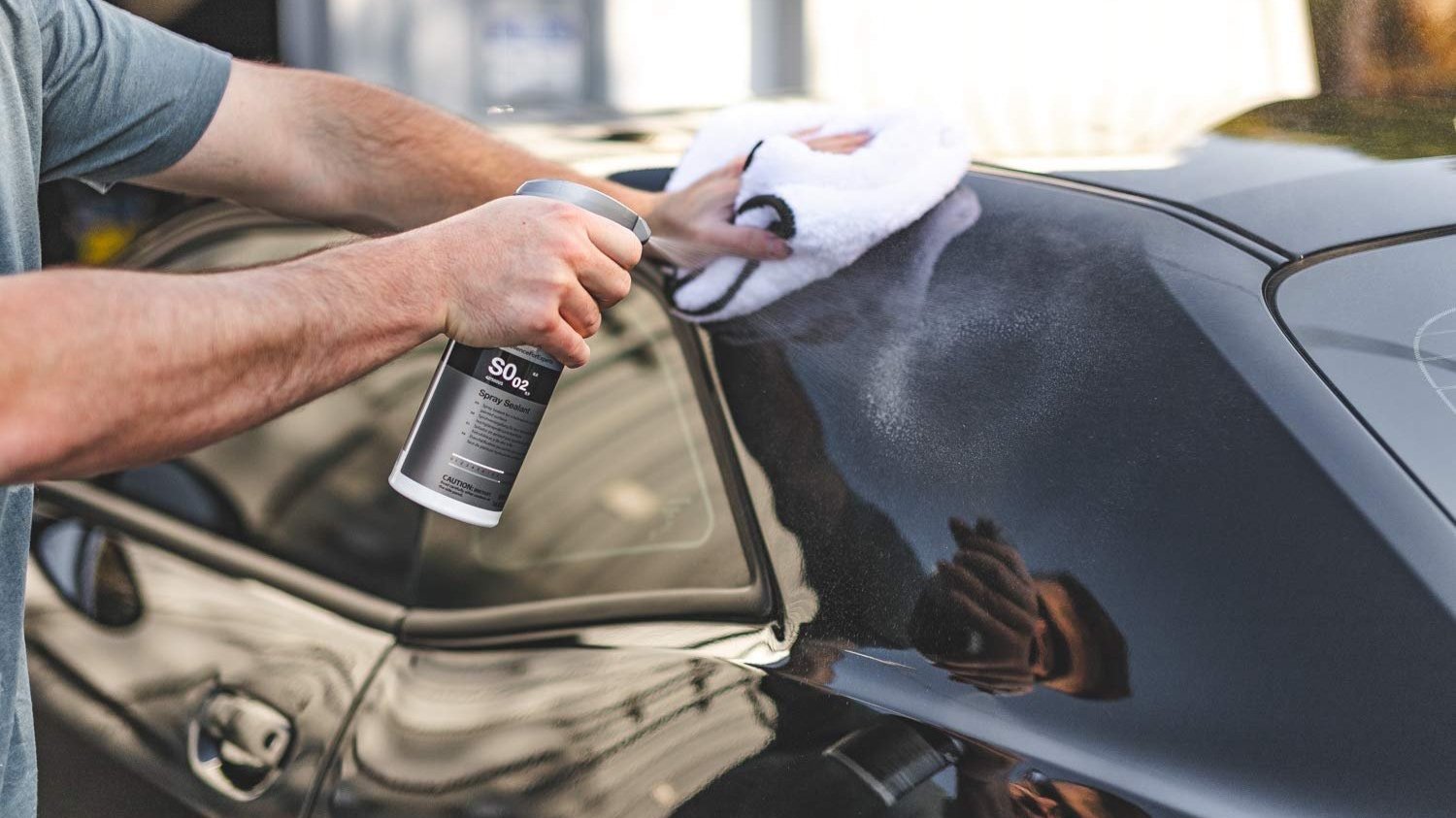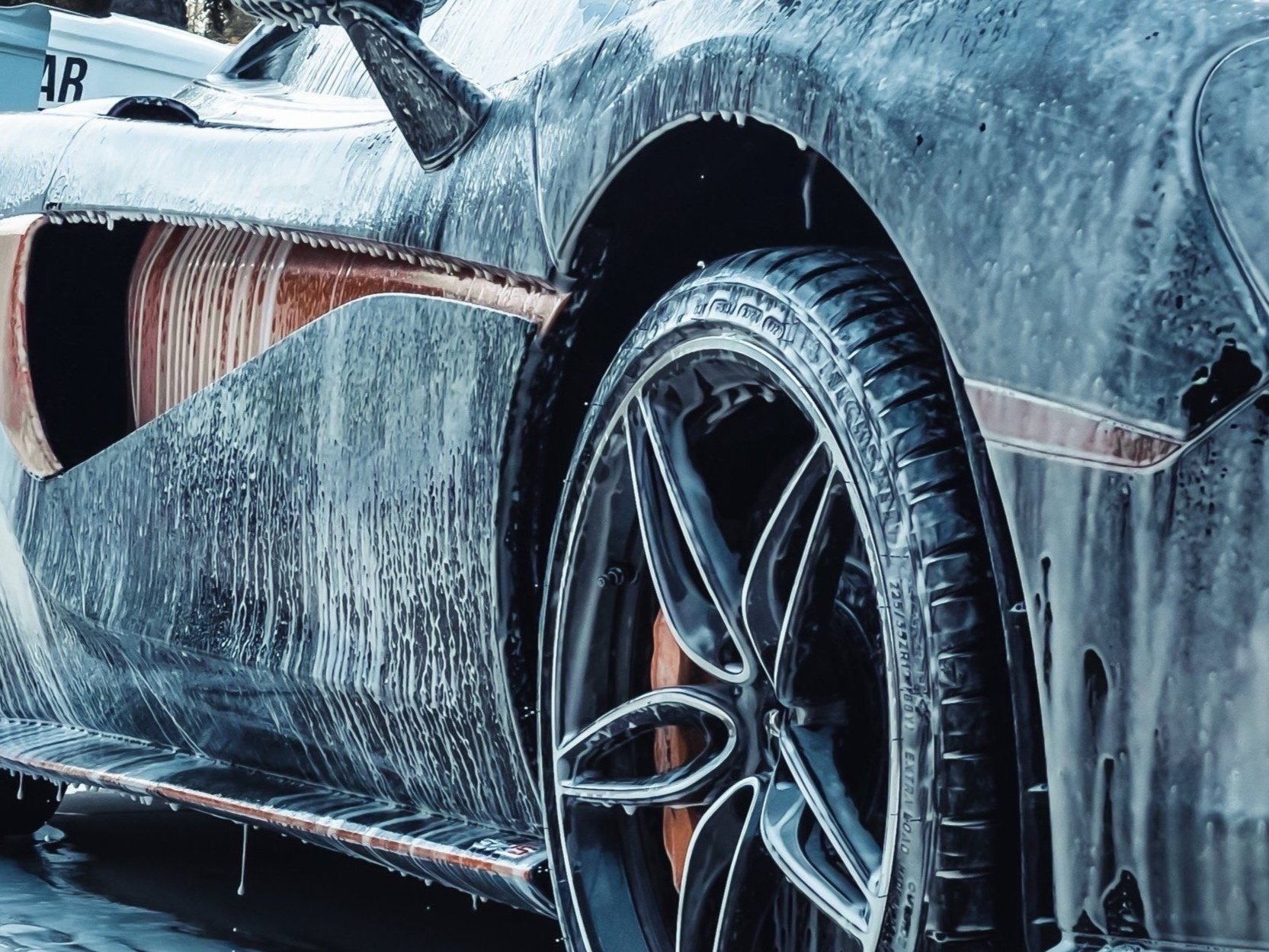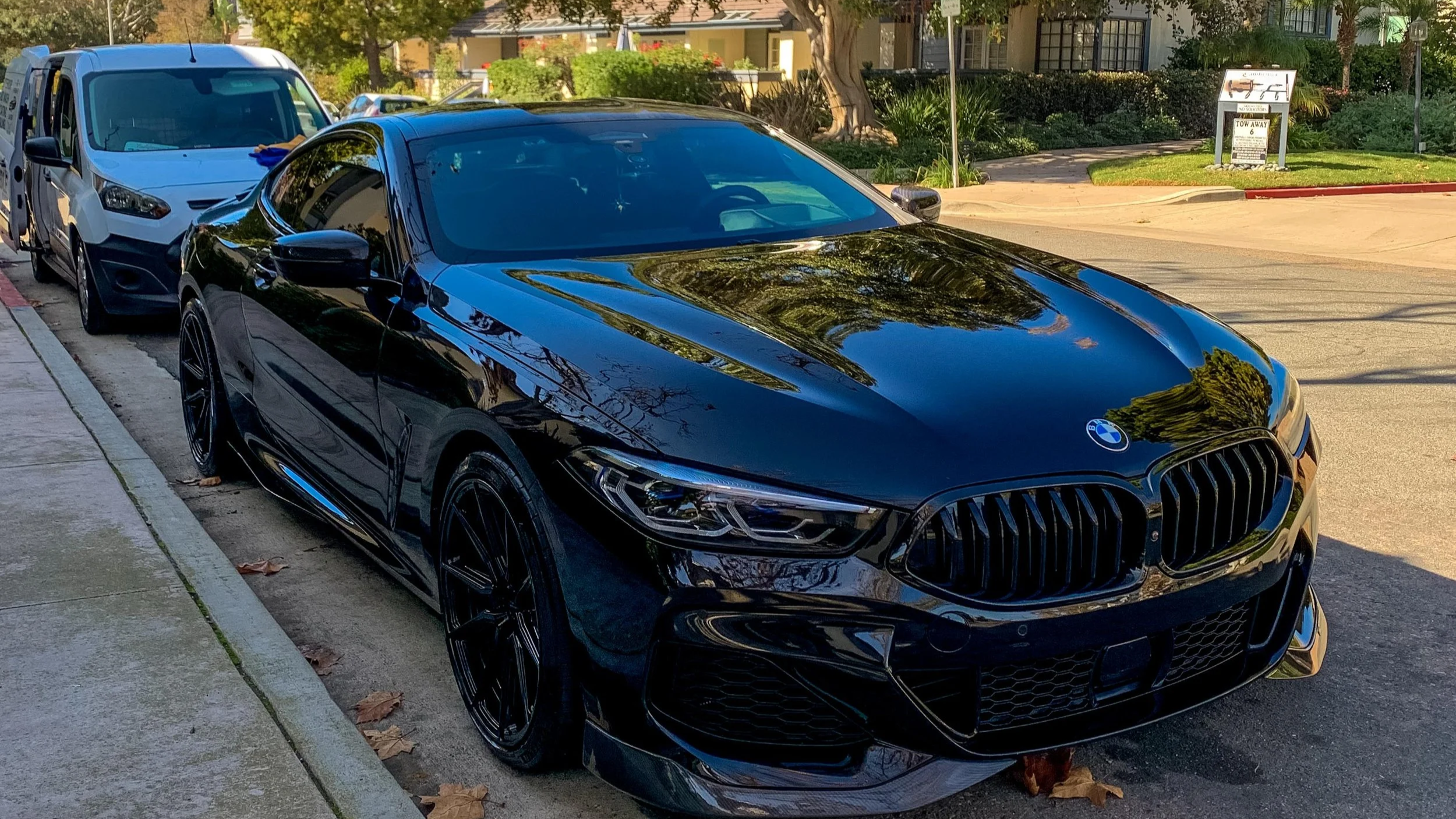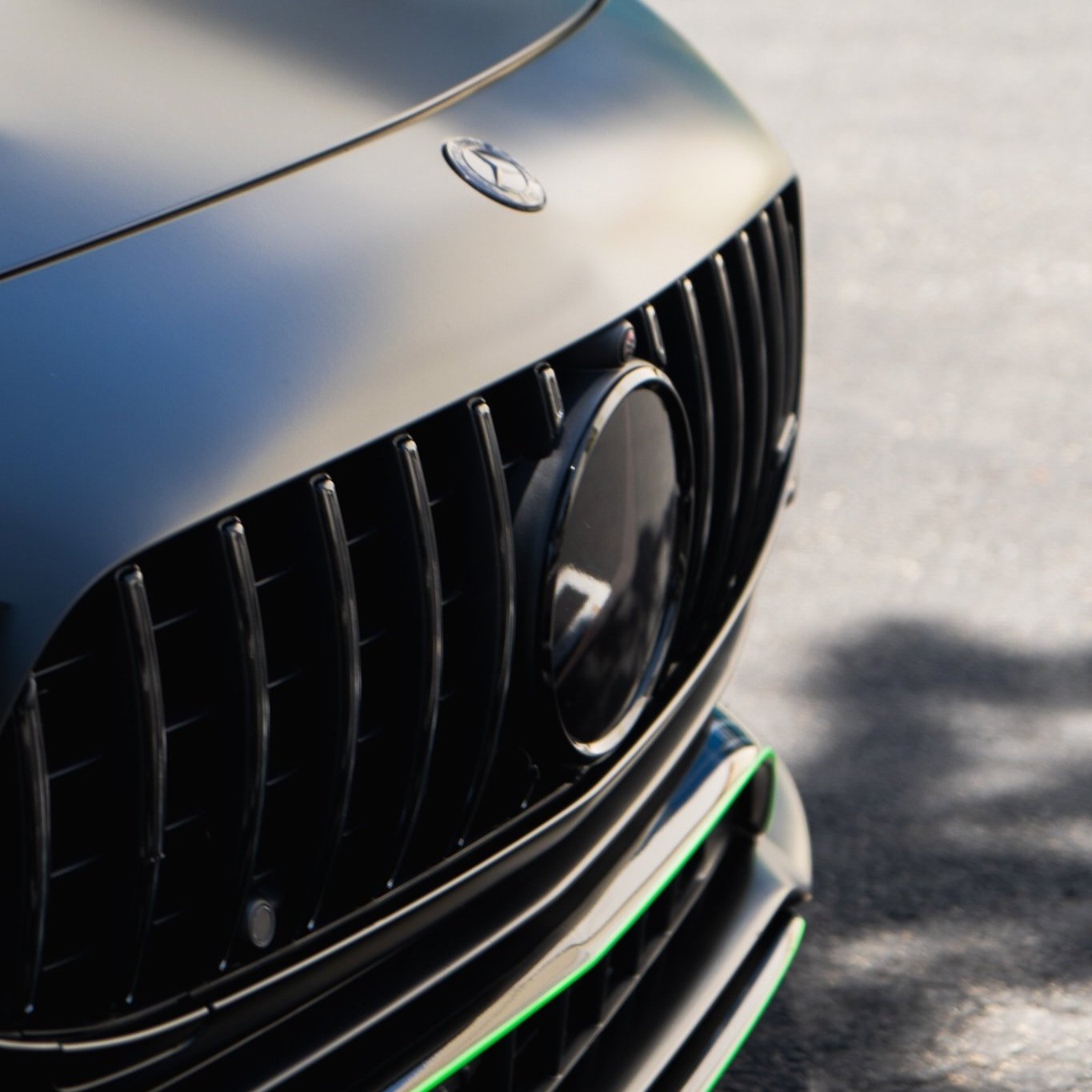How to Start a Mobile Detailing Business: Complete Startup Guide
Starting a mobile detailing business is one of the smartest moves you can make in 2025. I've spent over a decade in this industry, building Fresh Layer Mobile Detailing from a one-person operation into a thriving business with consistent 5-star ratings. The best part? You don't need a fancy shop or massive investment to get started.
Here's the reality: people are busier than ever and willing to pay good money for quality service that comes to them. Whether you're looking to escape the 9-to-5 grind or add a profitable side business, mobile detailing offers real opportunity with relatively low startup costs.
In this guide, I'll walk you through exactly how to start a mobile detailing business, from the equipment you'll need to landing your first customers. This isn't theory—it's the same process I've used to build a successful business and teach aspiring detailers through our one-on-one training program.
What You'll Learn:
Startup costs and equipment requirements
Legal requirements and business setup
Pricing strategies that actually work
Marketing tactics for your first 100 customers
Common mistakes and how to avoid them
Understanding the Mobile Detailing Business Model
Mobile detailing means you bring professional car cleaning and restoration services directly to your customer's location. Instead of them driving to a shop and waiting around, you show up at their home or office with everything needed to make their vehicle look brand new.
Exterior Cleaning: Washing, waxing, and applying sealants to protect the paint.
Interior Cleaning: Vacuuming, shampooing carpets, and cleaning leather or fabric upholstery.
Detailing Services: Polishing, ceramic coating, and minor scratch removal.
The real difference between mobile detailing and a regular car wash? Quality and attention to detail. You're spending 2-4 hours per vehicle instead of 15 minutes, and customers notice. That's why they're willing to pay $150-$400 per service instead of $30 for a basic wash.
Benefits of Starting a Mobile Detailing Business
Flexibility and Independence
One of the most appealing aspects of starting a mobile detailing business is the flexibility and independence it offers. As a mobile detailer, you have the freedom to set your own schedule, choose your clientele, and decide on the geographic areas you serve. This level of autonomy is particularly attractive to entrepreneurs who value the ability to balance work and personal life on their own terms.
-
The mobile nature of the business also means you are not tied to a single physical location. You can move your services to where the demand is, whether it's a bustling city center or a quiet suburban neighborhood. This mobility allows for a dynamic business model that can adapt to changing market conditions and customer preferences.
-
Mobile detailing also holds significant potential for profitability and growth. With lower overhead costs compared to a traditional brick-and-mortar detailing shop, mobile detailers can often offer competitive pricing while still maintaining healthy profit margins. The initial investment in a mobile detailing business is usually lower, primarily because there's no need to lease or purchase a physical location.
Moreover, the demand for car detailing services is consistently strong, and with the added convenience of mobile operation, you can tap into a market that values time-saving and personalized services. By offering high-quality detailing right at the customer’s doorstep, you can build a loyal customer base that appreciates the convenience and quality of your work.
Why Mobile Detailing Works in 2025
Starting a mobile detailing business offers several appealing advantages, Why Mobile Detailing Works in 2025
I started Fresh Layer because I saw a gap in the market. People wanted quality work without the hassle of traditional shops. That gap has only grown wider.
Here's what makes this business model so strong right now:
Time is the new currency. Professionals will gladly pay $200 to have you detail their car at their office while they're in meetings. That beats spending their Saturday at a detail shop.
Lower overhead means higher profits. Without rent, utilities, and a full staff, your profit margins are significantly better than a traditional shop. I've seen detailers keep 60-70% of their revenue as profit after expenses.
You control your schedule. Want to work four 10-hour days? Great. Prefer working evenings and weekends? That works too. The flexibility is real, not just a sales pitch.
The market keeps growing. According to industry data, the auto detailing market continues to expand as more consumers prioritize vehicle maintenance and appearance. The convenience factor of mobile services accelerates this growth.
From my experience training new detailers, the ones who succeed understand this isn't just about cleaning cars. You're selling convenience, quality, and peace of mind. Get that right, and customers will pay premium prices.
Step 1: Calculate Your Startup Costs
Start-up Costs and Equipment Investment
One of the primary obstacles is the start-up costs associated with acquiring the necessary equipment. To offer high-quality detailing services, you'll need to invest in a reliable vehicle, professional-grade cleaning solutions, pressure washers, vacuums, buffers, and various other tools and supplies
Let's talk real numbers. How much does it cost to start a mobile detailing business? Based on helping dozens of students launch their businesses, here's what you'll actually spend:
Essential Equipment Budget: $5,000-$8,000
Vehicle Setup ($2,000-$4,000):
Reliable cargo van or truck (used is fine to start)
Water tank system (50-100 gallons)
Generator (3,500-4,000 watts minimum)
Pressure washer (1,500-2,000 PSI)
Wet/dry vacuum (shop-grade)
Detailing Equipment ($1,500-$2,000):
Dual-action polisher
Foam cannon and wash buckets
Microfiber towels (lots of them)
Brushes and applicators
Extension cords and hoses
Products and Chemicals ($800-$1,200):
Car wash soap and wax
Interior cleaners and protectants
Glass cleaner and tire shine
Clay bar and compounds
Emergency supplies
Business Essentials ($700-$800):
Business license and permits
Insurance (liability and vehicle)
Website and basic marketing
Business cards and signage
Optional Upgrades: $2,000-$5,000
Once you're profitable, consider:
Ceramic coating equipment
Better polishing machines
Heated water system
Upgraded generator (quieter)
Professional branding wrap
Here's my advice: Start lean. I launched Fresh Layer with about $6,000 in equipment and upgraded as revenue grew. Your first few customers won't care if you have the fanciest gear—they care about results.
One detailer I trained started with $4,500 by buying some equipment used and sharing a generator with a friend. He was profitable within three weeks. Another invested $12,000 upfront for premium equipment. Both approaches worked, but the first guy had less financial stress while learning.
The key is having reliable equipment that lets you deliver quality work. You can always upgrade later with the money you make.
Competition and Market Saturation
Navigating a Crowded Market: The low entry barriers for starting a mobile detailing business can lead to a saturated market, with many small operators competing for the same clientele. Differentiating your service becomes essential in standing out.
Step 2: Choose Your Business Structure and Get Legal
Before you detail your first car, you need to set up your business properly. I learned this the hard way—don't skip this step.
Business Structure Options
Sole Proprietorship:
Easiest and cheapest to set up
You and the business are legally the same
Personal assets at risk if something goes wrong
Good for testing the waters
LLC (Limited Liability Company):
Separates your personal assets from business
More professional in customer's eyes
Costs $100-$500 to establish
What I recommend for most new detailers
Corporation:
More complex and expensive
Better for multi-employee operations
Probably overkill when starting out
Required Licenses and Permits
Check your local requirements, but you'll typically need:
Business License: Your city or county requires this. Costs $50-$400 depending on location. In San Diego, it's about $150 annually.
Sales Tax Permit: If your state has sales tax, you'll collect and remit it. Usually free to register.
EIN (Employer ID Number): Free from the IRS. Takes 10 minutes online. You'll need this for business banking.
Water Discharge Permit: Some cities regulate water runoff. California requires water reclamation or proper disposal. Check your local environmental regulations.
Insurance: Don't Skip This
General Liability Insurance: $500-$1,200 annually. Covers customer property damage and injuries. Non-negotiable.
Vehicle Insurance: Commercial policy for your work vehicle. Adds $600-$1,800 annually to your personal auto policy.
Equipment Insurance: Optional but smart. Covers theft or damage to your gear.
I pay about $2,000 annually for comprehensive coverage through a business insurance package. It's saved me once when a customer claimed I scratched their paint (I didn't—the camera I installed proved it).
Setting Up Your Business Bank Account
Open a separate business checking account immediately. This keeps your finances clean and makes taxes way easier. Most banks offer free business checking for small businesses.
You'll need:
Your business license
EIN number
Personal ID
Pro tip: Get a business credit card too. Use it exclusively for business expenses and pay it off monthly. This builds business credit and makes bookkeeping simple.
Step 3: Source Your Equipment and Supplies
Now for the fun part—buying your gear. After detailing thousands of vehicles, I have strong opinions about what works.
Vehicle Requirements
You need something reliable that can carry water, equipment, and handle daily driving. Here's what works:
Best Options:
Cargo van (Ford Transit, Mercedes Sprinter)
Pickup truck with camper shell
Large SUV with trailer
I started with a used Ford E-250 cargo van for $8,000. Still using it five years later. The key is space for:
50-100 gallon water tank
Generator (secured properly)
All equipment organized and accessible
Room to work inside during bad weather
Don't buy new. A used commercial van with 80,000 miles will serve you just fine and saves $20,000+.
Critical Equipment List
Water System ($400-$800): Get a proper water tank with pump. I use a 65-gallon tank that gives me enough for 3-4 full details. The pump needs at least 40 PSI. Skip the cheap camping tanks—they'll fail when you need them most.
Generator ($600-$1,200): Minimum 3,500 watts to run your pressure washer and vacuum simultaneously. Honda EU3200i is the gold standard—quiet and reliable. Champion makes good budget alternatives.
Pressure Washer ($300-$600): Electric models work great for mobile detailing. Look for 1,500-2,000 PSI. Gas-powered is overkill and wastes fuel. I use a Sun Joe SPX3000—cheap, reliable, gets the job done.
Dual-Action Polisher ($150-$400): Essential for paint correction. SPTA, TORQ, or Griot's Garage make solid entry-level polishers. Don't cheap out too much here—a good polisher makes you money.
Vacuum ($150-$300): Shop-grade wet/dry vacuum, minimum 6 HP. Ridgid and DeWalt make tanks that handle daily abuse. You'll use this on every single job.
Chemical and Product Strategy
Starting out, budget $800 for products that'll last 30-40 vehicles:
Exterior:
pH-neutral car wash soap
Clay bar and lubricant
Polish and compound
Sealant or wax
Tire shine and wheel cleaner
Interior:
All-purpose cleaner
Upholstery shampoo
Leather cleaner and conditioner
Glass cleaner
Odor eliminator
My recommendation: Start with Chemical Guys or Meguiar's. They're middle-of-the-road pricing with good results. As you grow, you can test premium brands or buy bulk to save money.
Where to buy: Amazon for quick delivery, Autogeek or Detailed Image for specialist products. Join detailing forums—members often share discount codes.
Tools and Supplies
Budget another $300-$500 for:
Microfiber towels (buy 50+ in various sizes)
Wash mitts and buckets (two-bucket method)
Foam cannon for pre-wash
Various brushes (soft, medium, stiff)
Applicator pads and buffing pads
Extension cords (100+ feet total)
Water hoses and quick-connects
Quality matters here. Cheap microfiber towels scratch paint. I learned this expensive lesson on a customer's Mercedes. Spend $100 on good towels from The Rag Company or Autofiber.
Step 4: Master the Skills (Or Get Trained)
Here's the truth: equipment is only half the equation. Knowing how to use it properly separates profitable detailers from failed businesses.
Self-Learning Path
If you're going solo, expect 2-3 months to get competent:
Week 1-2: Learn the basics
Watch YouTube tutorials (AMMONYC, Pan The Organizer, Chicago Auto Pros)
Practice on your own vehicle
Join detailing forums and Facebook groups
Study paint types and interior materials
Week 3-4: Develop technique
Practice proper washing technique
Learn two-bucket method
Master polishing on test panels
Practice interior deep cleaning
Week 5-8: Build consistency
Detail friends' cars for free feedback
Time yourself to understand job duration
Refine your process for efficiency
Document before/after results
Challenges with self-learning:
Takes longer to develop efficient systems
Higher risk of expensive mistakes
No feedback on technique
Harder to price services correctly
Professional Training Option
Our One-to-One Courses for Aspiring Detailers
If you looking to level up your bussines were offer a one to one training and help for all new car detailing owners.
This is where Fresh Layer's one-on-one training makes a difference. We've trained over 50 aspiring detailers, and they're typically booking paid customers within 2-3 weeks.
What professional training covers:
Proper washing techniques that won't damage paint
Paint correction and polishing fundamentals
Interior cleaning for different materials
Pricing strategies based on market analysis
Customer service and business management
Marketing and booking systems
The advantage: You're learning from someone who's made (and fixed) all the mistakes. My students avoid the costly errors I made early on, like using the wrong products on leather or not properly masking trim before polishing.
One student, James, tried learning on YouTube for two months with mixed results. After three training sessions with us, he was confidently taking customers and charging premium prices. His words: "I wasted two months when I could've been making money."
Investment comparison:
Self-learning: $0 upfront, 2-3 months, potential expensive mistakes
Professional training: $500-$2,000, 1-3 weeks, avoid costly errors, ongoing support
If you're serious about building a real business quickly, professional training pays for itself with your first few customers.
Step 5: Set Your Pricing Strategy
Pricing killed my profits in the first six months. I was too cheap, trying to compete with car washes. Don't make this mistake.
Understanding Your True Costs
Before setting prices, know what each job actually costs you:
Per Job Expenses:
Products and chemicals: $8-$15
Fuel and travel: $5-$10
Water and electricity: $3-$5
Equipment wear: $5-$8
Total per job: $21-$38
Your time has value. If a detail takes 3 hours and you charge $120, you're making $27 per hour after expenses. Not bad, but you can do better.
Service Package Structure
Here's what works in most markets:
Basic Exterior Detail: $150-$200
Full exterior wash and dry
Wheels and tires cleaned
Windows and mirrors
Quick wax or sealant
Time: 1.5-2 hours
Premium Exterior Detail: $250-$350
Everything in basic
Clay bar treatment
Paint polish and correction
Premium wax or sealant
Trim restoration
Time: 3-4 hours
Basic Interior Detail: $150-$200
Vacuum all surfaces
Wipe down dashboard and console
Clean windows and mirrors
Leather conditioning
Basic carpet cleaning
Time: 1.5-2 hours
Premium Interior Detail: $250-$350
Everything in basic
Deep shampoo carpets and seats
Steam cleaning
Leather deep conditioning
Trunk cleaning
Odor elimination
Time: 3-4 hours
Complete Full Detail: $350-$500
Complete interior and exterior
All premium services
Time: 4-6 hours
Specialty Services (Add-ons):
Headlight restoration: $75-$100
Engine bay cleaning: $75-$100
Pet hair removal: $50-$75
Ceramic coating: $500-$1,200+
Market Research Pricing
Check your local competition on:
Google Maps and Yelp
Facebook marketplace
Mobile detailing competitor websites
Traditional detail shop prices
Price positioning strategy: Don't be the cheapest. Position yourself 10-20% higher than car washes but 10-15% below premium detail shops. You're offering better quality than a car wash with more convenience than a shop.
In San Diego, basic details run $150-$180, premium $250-$300. In smaller markets, knock 20-30% off these prices. In major metro areas, add 20-30%.
Value-Based Pricing
This changed my business. Instead of pricing by time, price by value:
Customer with a $60,000 luxury vehicle? They'll pay $400 for premium work without blinking.
Fleet manager with 10 work trucks? Volume discount at $100 per truck still makes you $1,000.
Real estate agent needing regular monthly details? Package deal at $140/month with guaranteed schedule.
The detailer charging $99 for full details is working twice as hard for half the money. Don't be that person.
Step 6: Build Your Brand and Online Presence
You need customers. The fastest way to get them? Be visible where they're looking.
Create a Professional Website
Don't overthink this. A simple 5-page website works:
Essential pages:
Home (services overview, booking call-to-action)
Services (detailed package descriptions and pricing)
About (your story and credentials)
Gallery (before/after photos)
Contact (phone, email, booking form)
Website builders: Wix, Squarespace, or WordPress. Budget $20-$40/month. If you're not tech-savvy, hire someone on Fiverr for $200-$400.
Must-have features:
Mobile-friendly design
Clear phone number at top of every page
Online booking option
Before/after photo gallery
Customer reviews
Service area map
Your website needs to answer: What do you do? How much does it cost? How do I book? Make it dead simple.
Google Business Profile (Critical)
This is your #1 free marketing tool. Set up your Google Business Profile immediately:
Claim your business at google.com/business
Add accurate service areas
Upload 10-15 high-quality photos
Write a detailed business description
Choose accurate categories (Auto Detailing Service, Car Wash)
Add your hours and contact info
Why this matters: When someone searches "mobile detailing near me" or "car detailing San Diego," your profile shows up. This is how I get 40% of new customers.
Getting reviews: Ask every happy customer to leave a Google review. Make it easy—send them a direct link after the job. I offer 10% off their next service for leaving a review. Reviews = trust = bookings.
Social Media Marketing
Instagram is king for detailing businesses. Visual before/after content performs incredibly well.
Content strategy:
Post 4-5 times per week
Before/after transformations
Process videos (time-lapses are gold)
Product recommendations
Customer testimonials
Behind-the-scenes content
Facebook:
Create a business page
Join local community groups
Post weekly updates
Run targeted ads ($5-$10/day gets results)
Pro tip: Take photos of EVERYTHING. Every job is content. I shot 30 seconds of video on every car for the first year. That content library still brings customers today.
Local SEO and Directories
Register your business on:
Yelp
Angie's List / Angi
Nextdoor
Thumbtack
Facebook local services
Consistency matters. Use the exact same business name, address, and phone number everywhere. Search engines verify your legitimacy through consistency.
Step 7: Get Your First Customers
Market Research and Identifying Your Niche
Google GMB, Facebook, Yelp , Instagram all this platforms can help you to grow your business.
Marketing theory is useless without customers. Here's how to book your first 20 jobs:
The Friends and Family Launch
Start here. Offer free or heavily discounted details to:
Your own vehicles (document everything)
Family members' cars
Close friends
Neighbors
The ask: Can I detail your car for free in exchange for honest feedback and a Google review?
This gives you practice, builds your portfolio, and generates your first reviews. I did 10 free details before charging full price. Those reviews launched my business.
Local Networking That Actually Works
Office parks: Drop business cards at receptionist desks. Offer a special discount for employees. One office building can give you 15 regular customers.
Real estate offices: Realtors need clean cars constantly. Offer a realtor discount program. They'll refer you to clients too.
Car dealerships: Service departments often outsource detailing. Offer wholesale rates for overflow work.
Apartment complexes: Leave flyers on windshields (check rules first). Offer a "resident special" discount.
Gyms and coffee shops: Ask to leave business cards at the counter. Many owners support local businesses.
Digital Marketing for Quick Wins
Facebook Ads ($10/day): Target people within 10 miles, ages 30-55, interested in cars and auto maintenance. Simple ad: "Professional mobile detailing in [Your City]. We come to you. Book now for 20% off first service."
Facebook Marketplace: Post your services daily. Free advertising with good local reach. Include clear pricing and phone number.
Nextdoor: Introduce yourself to neighbors. Offer a "new neighbor special." People love supporting local businesses on Nextdoor.
Craigslist: Still works in many markets. Post daily under services. Include photos and clear pricing.
Partnership Strategy
Car washes: Partner with automatic car washes. They handle volume, you handle premium work. Leave flyers with wash managers.
Mechanics and auto shops: They see cars needing detailing constantly. Offer them 10% referral commission.
Rental car companies: Fleet vehicles need regular cleaning. Offer corporate rates.
Used car dealers: Small dealers need cars detailed before selling. This can become steady work.
My first $3,000 month came from one partnership with a small used car dealership. Twelve cars at $100 each, every single week.
Step 8: Deliver Exceptional Service
Getting customers is one thing. Keeping them and getting referrals is how you build a real business.
The Client Experience
Before the appointment:
Confirm via text the day before
Show up exactly on time (never late)
Text when you're 10 minutes away
Park considerately and professionally
During the service:
Introduce yourself professionally
Explain what you'll be doing
Ask about any specific concerns
Work efficiently and quietly
Respect their property
After the service:
Walk them through what you did
Point out specific improvements
Provide care tips
Ask for feedback
Request a review (make it easy)
Quality Control Standards
Create a checklist for every job:
Exterior:
☐ All dirt and debris removed
☐ No water spots or streaks
☐ Tires and wheels spotless
☐ Glass perfectly clear
☐ Trim and plastic restored
☐ Even wax/sealant coverage
Interior:
☐ No visible dirt or crumbs
☐ Vents and crevices cleaned
☐ All surfaces properly treated
☐ Carpets fully cleaned and dried
☐ No product residue
☐ Fresh smell (not overpowering)
Before you leave, inspect everything. Fix issues before the customer sees them. Your reputation depends on consistency.
Building Customer Loyalty
The monthly maintenance plan: Offer a subscription at 15% off regular prices. Guaranteed monthly detailing creates predictable revenue.
Example: $150 full detail becomes $127.50/month on subscription. Customer saves money, you guarantee $1,530 annually from one customer.
Referral program: Give existing customers $25 off their next detail for every new customer they refer. Word-of-mouth is your best marketing.
Seasonal reminders: Text customers when it's time for spring cleaning or winter protection. Stay top of mind.
Birthday discount: Simple gesture that keeps customers loyal. Everyone appreciates being remembered.
I have 40 customers on monthly maintenance plans. That's $5,000+ in guaranteed monthly revenue before I book any new customers.
Common Mistakes to Avoid
Learn from my expensive mistakes:
Pricing Too Low
The mistake: Charging $80-$100 for full details to compete with car washes.
Why it fails: You can't make money at these prices. After expenses and time, you're making minimum wage or less.
The fix: Price based on value, not car washes. Quality customers pay for quality work.
Skipping Insurance
The mistake: "I'll get insurance after I get busy."
Why it fails: One damage claim without insurance can bankrupt you. It only takes one time.
The fix: Get proper insurance from day one. It's a cost of doing business, not optional.
Over-Promising on Time
The mistake: "I'll have it done in 2 hours" when it takes 4 hours.
Why it fails: Rushed work looks bad. Late delivery frustrates customers.
The fix: Over-estimate time, under-promise. It's better to finish early than run late.
Poor Water Management
The mistake: Not checking local water discharge regulations.
Why it fails: Fines from environmental violations can be $1,000+ per incident.
The fix: Research local laws. Use water reclamation systems or eco-friendly practices where required.
Neglecting Marketing
The mistake: "I'll market once I'm less busy."
Why it fails: Business slows down quickly without consistent marketing. Feast or famine cycle.
The fix: Set aside 30 minutes daily for marketing, even when busy. Consistency prevents slow periods.
Not Tracking Finances
The mistake: Mixing personal and business money, no bookkeeping.
Why it fails: You can't manage what you don't measure. Tax time becomes a nightmare.
The fix: Separate bank account, track every expense, use simple software like QuickBooks or Wave (free).
Scaling Your Business
Once you're consistently booked, you have options:
Growing Solo
Maximize your individual earning:
Increase prices by 10-15% annually
Focus on high-value services (ceramic coating, paint correction)
Build subscription customer base
Work 4-5 days per week, gross $8,000-$12,000/month
Adding Team Members
When to hire: When you're turning down work regularly for 3+ months straight.
First hire considerations:
Employee vs. contractor (check your state laws)
Workers compensation insurance required
Training period (2-4 weeks minimum)
Quality control systems
Pay structure: hourly ($15-$20) or percentage (30-40% of job)
Two-person operation reality:
You work 4 days, employee works 4 days = 8 days of revenue
Gross revenue increases 60-80%
Profit margins decrease 10-15% due to labor costs
More management responsibility
Multiple Crews
The big league: Two or more crews operating simultaneously.
Requirements:
Multiple vehicle setups ($12,000-$15,000 each)
Reliable employees (hardest part)
Strong systems and processes
Dedicated management time
Commercial insurance coverage
Financial reality:
Monthly gross: $25,000-$40,000 possible
Owner profit: 20-30% after all expenses
Requires 20-30 hours weekly on management
Less hands-on detailing, more business operations
I stayed solo for three years before hiring. Made good money with less stress. Now I have two employees and make more money but work differently—more managing, less detailing.
Frequently Asked Questions
-
It depends on your market, pricing, and work ethic. Solo operators typically make $50,000-$80,000 annually working full-time. In premium markets charging higher prices, $100,000+ is realistic. I personally grossed $95,000 my second full year working solo, keeping about $65,000 after all expenses.
-
Not necessarily, but it helps dramatically. Basic car care knowledge is essential—you should understand different paint types, interior materials, and proper cleaning techniques. Most successful detailers either have previous detailing experience, are serious car enthusiasts, or get professional training. Trying to learn everything while running a business is extremely challenging.
-
A cargo van is ideal—Ford Transit, Mercedes Sprinter, or Nissan NV. They protect your equipment from weather, provide security, and look professional. A pickup truck with camper shell works too and costs less. Whatever you choose, ensure it fits a water tank, generator, and all equipment with room to work inside during bad weather.
-
Basic exterior detail: 1.5-2 hours. Premium exterior with polishing: 3-4 hours. Basic interior: 1.5-2 hours. Premium interior: 3-4 hours. Full comprehensive detail: 4-6 hours. Your speed will improve with experience, but never rush quality for speed.
-
Rain and extreme weather present challenges. Light rain is manageable for interior-only work. Heavy rain means rescheduling exterior services. Cold weather (below 40°F) makes some products less effective and water lines can freeze. Many mobile detailers focus on interior work during winter months or offer garage-based services.
-
Address them immediately and professionally. Listen to their concern, apologize for any issue, and offer to fix it right away or provide a partial refund if fixing isn't possible. Most complaints come from miscommunication about expectations. Set clear expectations upfront and document before/after results to avoid issues.
Ready to Start Your Mobile Detailing Business?
You now have the complete roadmap for how to start a mobile detailing business. From calculating startup costs to landing your first customers, you have everything needed to launch successfully.
The difference between reading this guide and actually building a profitable business comes down to execution and skill development. You can absolutely teach yourself through trial and error, but that path takes longer and includes expensive mistakes.
Want to fast-track your success?
Fresh Layer offers one-on-one training specifically designed for aspiring mobile detailing business owners. We've helped over 50 students launch successful businesses, avoiding the costly mistakes I made when starting out.
Our training covers:
Hands-on detailing technique development
Business setup and legal requirements
Pricing strategies for your specific market
Equipment selection and sourcing
Marketing systems that generate customers
Ongoing support as you build your business
Most students are confidently booking paying customers within 2-3 weeks of training.
[Apply for One-on-One Training →]
Whether you choose professional training or the self-taught path, the mobile detailing industry offers real opportunity in 2025. The demand for quality, convenient service continues growing, and customers are willing to pay premium prices for expertise.
The question isn't whether mobile detailing can be profitable—it absolutely can. The question is whether you'll take action and build it.
Start with one detail. Then another. Then another. Before you know it, you'll have a thriving business that provides freedom, flexibility, and strong income.
Ready to start your mobile detailing journey? Let's make it happen.









